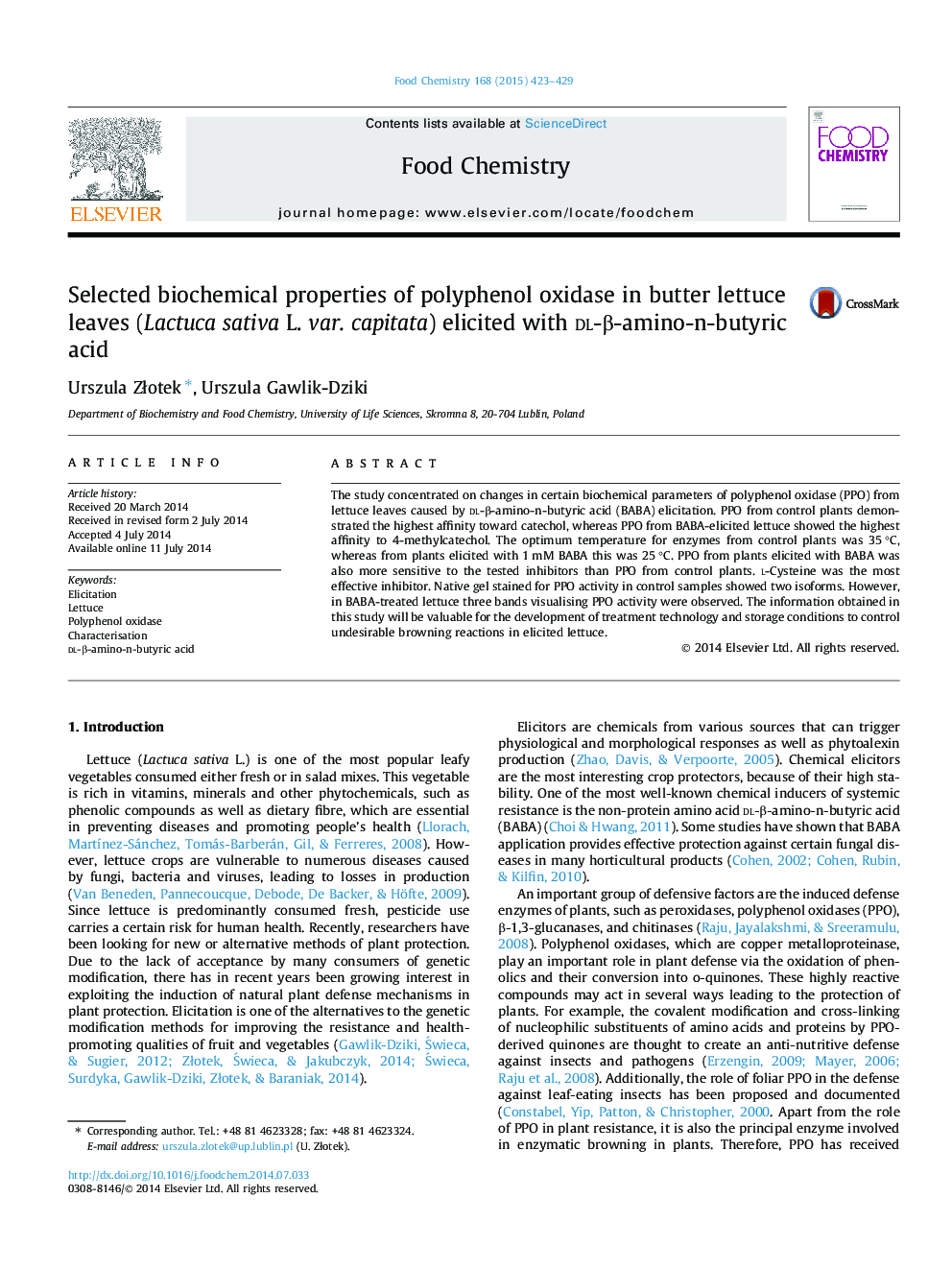| Article ID | Journal | Published Year | Pages | File Type |
|---|---|---|---|---|
| 7595256 | Food Chemistry | 2015 | 7 Pages |
Abstract
The study concentrated on changes in certain biochemical parameters of polyphenol oxidase (PPO) from lettuce leaves caused by dl-β-amino-n-butyric acid (BABA) elicitation. PPO from control plants demonstrated the highest affinity toward catechol, whereas PPO from BABA-elicited lettuce showed the highest affinity to 4-methylcatechol. The optimum temperature for enzymes from control plants was 35 °C, whereas from plants elicited with 1 mM BABA this was 25 °C. PPO from plants elicited with BABA was also more sensitive to the tested inhibitors than PPO from control plants. l-Cysteine was the most effective inhibitor. Native gel stained for PPO activity in control samples showed two isoforms. However, in BABA-treated lettuce three bands visualising PPO activity were observed. The information obtained in this study will be valuable for the development of treatment technology and storage conditions to control undesirable browning reactions in elicited lettuce.
Related Topics
Physical Sciences and Engineering
Chemistry
Analytical Chemistry
Authors
Urszula ZÅotek, Urszula Gawlik-Dziki,
